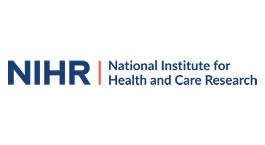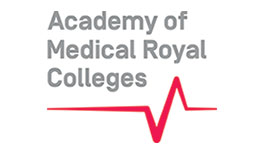Masters applications for 2023 entry are now closed.
Applications for September 2024 will open on Monday 25 September. Applications are now open for programmes with a January 2024 start. View our programmes »
| UCAS code |
1234 |
| Duration |
2 or 3 years part time distance
|
| Entry year |
September 2025 |
| Campus |
Online
|
| Discipline |
Healthcare and Medicine
|
| Contact |
|
| UCAS code |
|
| Duration |
Over 2 years part time distance |
| Entry year |
September 2025 |
| Campus |
Online
|
| Discipline |
Healthcare and Medicine
|
| Contact |
|
Overview
- The MSc Leading Clinical Research Delivery at Exeter is one of only three NIHR-AoMRC funded, fully online MSc programmes, developed in line with the NIHR-AoMRC Clinician Researcher Credentials Framework. It supports practising clinical professionals aspiring to work in the clinical research delivery workforce.
- Practically focused course that builds the necessary networks to gain the skills and confidence required to lead and support clinical research delivery.
- Examine the infrastructures and policies shaping clinical research, learn how to engage with patients, plan projects, manage budgets and gain practical experience by supporting current clinical research projects.
- Benefit from flexible access to high-quality interactive online learning modules tailored to meet the challenges and opportunities for clinical research in the 21st Century NHS, whilst supporting the Government’s plan to create a world-leading UK clinical research environment. The report Saving and Improving Lives: The Future of UK Clinical Research Delivery provides further detail of the ambitious vision for the future of clinical research delivery.
- Provides a number of opportunities to apply for fully funded places for eligible applicants, in some cases with additional funding for back-fill of role or study-time to facilitate study (see funding section below).
Top 10 in the UK for our world-leading and internationally excellent Clinical Medicine research
Our Public Health research is 11th in the UK for research power
Major capital investment in new buildings and state-of-the-art facilities
Top 10 in the UK for our world-leading and internationally excellent Clinical Medicine research
Our Public Health research is 11th in the UK for research power
Major capital investment in new buildings and state-of-the-art facilities
Accreditations
As announced on the NIHR website on 21 October 2022, the MSc Leading Clinical Research Delivery is an extension of the PGCert Leading Clinical Research Delivery. The MSc and PGCert are partially funded by the NIHR-AoMRC and have been developed in line with the NIHR-AoMRC Clinician Researcher Credentials Framework to support practising healthcare professionals aspiring to work in clinical research delivery.
Entry requirements
Normally a minimum 2.2 Honours degree (or equivalent) in a relevant discipline. Relevant clinical or professional experience (more than two years post-qualification) may be taken into consideration as evidence of equivalency.
Applicants will be experienced healthcare professionals from any registered healthcare discipline, such as medicine, nursing, midwifery and the allied health professions (including pharmacists and healthcare scientists), or those who have worked in a relevant role for at least two years (e.g. clinical trials manager, clinical research practitioners, university postdoctoral researcher).
The target audience for this programme are clinical researchers based in NHS / public funded healthcare settings in England. We also welcome applicants from academia, social care, the devolved UK nations and countries outside the UK for whom the content is relevant.
Students who have successfully completed the PGCert will be eligible to join the PGDip / MSc programme with their prior learning recognised.
As part of your application, you will need to upload a completed PDF version of the linked Expression of Interest Form in the references section of University Admissions Portal.
If you are joining the University of Exeter Leading Clinical Research Programme following completion of the PGCert Leading Clinical Research Delivery at another institution, you should contact us at the point of application to confirm use of credits for the APL process. Please ensure you select the correct course (see details on the Expression of Interest form). You will also need to complete the APL process alongside your application.
Students joining who have prior experience who have level 7 credits from another institution can use the Accreditation of Prior Learning (APL) process. You should read the information regarding the APL process before applying: APL process.
The course attracts bursary funding for eligible students a number of sources. Information about bursaries can be found in the Funding and scholarships section below.
Entry requirements for international students
Please visit our entry requirements section for equivalencies from your country and further information on English language requirements.
Read more
Entry requirements for international students
English language requirements
International students need to show they have the required level of English language to study this course. The required test scores for this course fall under Profile B2. Please visit our English language requirements page to view the required test scores and equivalencies from your country.
Course content
Healthcare is becoming increasingly complex, with clinical work and clinical research requiring unprecedented levels of cooperation between diverse providers and multiple sectors. We will provide you with a strong theoretical foundation covering topics such as research leadership, equality, diversity and inclusion, as well as planning and piloting to ensure study feasibility and optimal delivery. Alongside this, you will consider the practicalities of doing clinical research and ways to improve participant recruitment. Our Research Practice Experience modules enables you to put theory into practice by being directly involved with a clinical research project.
This programme has been developed in line with the NIHR-AoMRC Clinician Researcher Credentials Framework to support practising healthcare professionals aspiring to work in clinical research delivery. Through the programme, you will continue developing your patient-centred approach to research delivery and understanding of measures of health outcomes. With a strong emphasis on using reflective practice to apply and transfer learning from the course, you will develop yourself as an adaptable, reflexive practitioner ready to lead clinical research delivery.
Specialisms
Students following the MSc will be able to specialise in one of four areas:
- leadership,
- research methodologies,
- genomic medicine
- or public health,
by taking relevant 15-credit modules and choosing a related dissertation topic.
Contact dates
Leading Clinical Research Delivery contact days timetable 24/25
Please note: This timetable is draft and subject to change.
Modules
The programme is divided into study units or modules which are assigned a number of credits. The credit rating of a module is proportional to the total workload, with one credit being nominally equivalent to 10 hours of work. Each 15-credit module in the MSc Leading Clinical Research Delivery therefore requires 150 hours (around 12 hours of study per week, across a term). The 60-credit Master’s project is a full-year project that should take around 600 hours to complete. Most of your study will be asynchronous, allowing you to work through the online material at a time convenient for you. Modules will also have some compulsory contact days, where you will meet with your tutor and peers via Teams or Zoom (dates will be provided in advance to aid your planning).
The modules we outline here provide examples of what you can expect to learn on this degree course based on recent academic teaching. The precise modules available to you in future years may vary depending on staff availability and research interests, new topics of study, timetabling and student demand.
MSc Leading Clinical Research Delivery: 135 compulsory credits; 45 optional credits
Overview:
- MSc Students studying part-time over 3 years would complete modules HPDM149Z, HPDM150Z, HPDM151Z and one non-compulsory module in Year 1, HPDM158Z and two non-compulsory modules in Year 2 and the Independent Research module in Year 3.
- MSc students studying part-time over two years would complete 180 credits over two years (maximum of 120 credits per year) with HPDM149Z, HPDM150Z and HPDM151Z compulsory in year 1 and HPDM158Z and HPDM148Z (Independent Research module) compulsory in Year 2. Optional modules could be taken in year 1 or 2.
- In addition to the credit-bearing modules of this programme, all students on Postgraduate Taught Programmes must complete the 0-credit Master’s Level Learning module (click here) as part of their Induction.
Compulsory modules
| Code | Module |
Credits |
|---|
| HPDM149Z |
Integrity and Leadership in Research for Health and Healthcare | 15 |
| HPDM150Z |
Doing Clinical Research | 15 |
| HPDM151Z |
Research Practice Experience | 15 |
| HPDM158Z |
Advanced Research Practice Experience | 30 |
| HPDM148Z |
Independent Research | 60 |
Optional modules
Specialism information:
By selecting modules from a specific specialism as shown below, you can opt to follow a particular area of specialism aligned to the themes outlined in the Future of UK Clinical Research Delivery report. If a specialism is selected, this can be included (in parentheses) after the award name.
Your eligibility for the particular award will be confirmed by the final Assessment Progression and Awarding Committee (APAC) on the basis of the modules that have been completed.
To qualify for a particular specialism you must select 2 modules from the specialism modules as detailed in the Programme Modules table above. Your Master’s level project should also be on a theme consistent with the specialism you have chosen. This will be determined through discussion with your various tutors and supervisors before you start the project.
Your eligibility for the particular award will be confirmed by the final Assessment Progression and Awarding Committee (APAC) on the basis of the modules that have been completed. In order to graduate with a particular specialism award in parentheses, you will need to select the appropriate specified option modules and notify the programme support team accordingly. Otherwise, the award name will be Master of Leading Clinical Research Delivery.
(a) Leadership Specialism Modules
(b) Research methodology specialism modules
(c) Genomic Medicine specialism modules
(d) Public Health specialism modules
| Code | Module |
Credits |
|---|
| HPDM121Z |
Epidemiology (d) | 15 |
| HPDM136Z |
Evidence to Decision: Health Technology Assessment, Health Policy and Resource Allocation (d) | 15 |
| HPDM127Z |
Principles of Primary Care | 15 |
| HPDM054Z |
Statistics as Applied To Health (b) | 15 |
| HPDM056Z |
Clinical Trials (b) | 15 |
| HPDM154Z |
Future Health: Beyond Data (a) | 15 |
| HPDM155Z |
Future Health: Reimagining Systems (a) | 15 |
| HPDM082AZ |
Fundamentals of Human Genetics and Genomics (c) | 15 |
| HPDM044Z |
Ethical, Legal and Social Issues in Applied Genomics ONLINE (c) | 15 |
| HPDM036Z |
Omics Techniques and their Application to Genomic Medicine ONLINE (c) | 15 |
| HPDM037Z |
Genomics of Common and Rare Disorders (c) | 15 |
| HPDM118Z |
Structuring and Solving Public Health Problems (d) | 15 |
| HPDM124Z |
Principles of Health Protection (d) | 15 |
| HPDM055Z |
Qualitative Methods and Process Evaluations (b) | 15 |
Compulsory modules
PGDip Leading Clinical Research Delivery: 75 compulsory credits; 45 Optional credits
Overview:
- PGDip students study over two years, completing the three compulsory modules HPDM149Z, HPDM150Z and HPDM151Z plus one non-compulsory module in Year 1; and compulsory 30-credit module HPDM158Z plus two non-compulsory 15-credit modules from the selection below in Year 2.
- In addition to the credit-bearing modules of this programme, all students on Postgraduate Taught Programmes must complete the 0-credit Master’s Level Learning module (click here) as part of their Induction.
| Code | Module |
Credits |
|---|
| HPDM149Z |
Integrity and Leadership in Research for Health and Healthcare | 15 |
| HPDM150Z |
Doing Clinical Research | 15 |
| HPDM151Z |
Research Practice Experience | 15 |
| HPDM158Z |
Advanced Research Practice Experience | 30 |
Optional modules
Specialisms are not available at PGDip level, but if you are planning to progress to the MSc you should bear this in mind when selecting your optional modules. Please refer to the Specialism information for the MSc LCRD below for details on specialisms.
| Code | Module |
Credits |
|---|
| HPDM149Z |
Integrity and Leadership in Research for Health and Healthcare | 15 |
| HPDM150Z |
Doing Clinical Research | 15 |
| HPDM151Z |
Research Practice Experience | 15 |
| HPDM158Z |
Advanced Research Practice Experience | 30 |
| HPDM121Z |
Epidemiology | 15 |
| HPDM136Z |
Evidence to Decision: Health Technology Assessment, Health Policy and Resource Allocation | 15 |
| HPDM127Z |
Principles of Primary Care | 15 |
| HPDM054Z |
Statistics as Applied To Health | 15 |
| HPDM056Z |
Clinical Trials | 15 |
| HPDM154Z |
Future Health: Beyond Data | 15 |
| HPDM155Z |
Future Health: Reimagining Systems | 15 |
| HPDM055Z |
Qualitative Methods and Process Evaluations | 15 |
| HPDM082AZ |
Fundamentals of Human Genetics and Genomics | 15 |
| HPDM044Z |
Ethical, Legal and Social Issues in Applied Genomics ONLINE | 15 |
| HPDM037Z |
Genomics of Common and Rare Disorders | 15 |
| HPDM036Z |
Omics Techniques and their Application to Genomic Medicine ONLINE | 15 |
| HPDM118Z |
Structuring and Solving Public Health Problems | 15 |
| HPDM124Z |
Principles of Health Protection | 15 |
Compulsory modules
The following tables describe the programme and constituent modules. Constituent modules may be updated, deleted or replaced as a consequence of the annual review of this programme. Details of the modules currently offered may be obtained from the College website:
https://www.exeter.ac.uk/postgraduate/courses/medicine/lcrd/
45 credits of compulsory modules, 15 credits of optional modules
| Code | Module |
Credits |
|---|
| HPDM149Z |
Integrity and Leadership in Research for Health and Healthcare | 15 |
| HPDM150Z |
Doing Clinical Research | 15 |
| HPDM151Z |
Research Practice Experience | 15 |
Optional modules
| Code | Module |
Credits |
|---|
| HPDM121Z |
Epidemiology | 15 |
| HPDM136Z |
Evidence to Decision: Health Technology Assessment, Health Policy and Resource Allocation | 15 |
| HPDM127Z |
Principles of Primary Care | 15 |
| HPDM054Z |
Statistics as Applied To Health | 15 |
| HPDM056Z |
Clinical Trials | 15 |
| HPDM154Z |
Future Health: Beyond Data | 15 |
| HPDM155Z |
Future Health: Reimagining Systems | 15 |
Students following the MSc will be able to specialise in one of four areas listed below, by selecting relevant 15-credit optional modules and choosing a related dissertation topic. The four specialisms are aligned to our postgraduate and research strengths at Exeter and exemplify the themes outlined in the Future of UK Clinical Research Delivery report.
- Leadership: (options selected from 4 leadership modules)
- Research Methodology: (options selected from 3 research methods modules)
- Genomic Medicine: (options selected from 4 genomic medicine modules)
- Public Health: (options selected from 4 public health modules)
Fees
2025/26 entry
UK fees per year:
MSc: £6,100pa part-time 2 years, £4,050pa part-time 3 years
PGDip: £4,050pa part-time 2 years
PGCert: £4,050
Standalone module fees: UK: £1,150 per 15-credit module
International fees per year:
MSc: £14,300pa part-time 2 years, £9,550 pa part-time 3 years
PGDip: £9,550pa part-time 2 years
PGCert: £9,550
Standalone module fees: International: £2,600 per 15-credit module
Scholarships
The University of Exeter has many different scholarships available to support your education, including £5 million in scholarships for international students applying to study with us in the 2025/26 academic year, such as our Exeter Excellence Scholarships*.
For more information on scholarships and other financial support, please visit our scholarships and bursaries page.
*Terms and conditions apply. See online for details.
Funding and scholarships
To be eligible to receive funding for any of the bursaries outlined below, you will need to have a place on and LCRD programme. Please complete your application as soon as possible to assure your funding if your application is successful. Please select Apply Online at the top right of this page to start your application. Please ensure you select the appropriate programme route for the funding stream selected. In some cases, it may be possible to apply for more than one type of bursary at a time.
Department of Health and Social Care Bursaries
There will continue to be a large number of DHSC bursaries available through the NIHR for eligible applicants to study for a PGCert, PGDip or MSc LCRD – this year 56 of our students received a full fees bursary for their course and we anticipate a similar number being available in 2025-26. Please see the NIHR-AoMRC Clinician Researcher Credentials Framework website and sign-up for updates to receive up-to-date information on eligibility, funding updates and how/when to apply.
To be eligible to accept a bursary offered via this route, you will need to have been offered a place on an LCRD course. Please select Apply Online at the top right of this page to start your application this can be done alongside or prior to your bursary application.
Fully funded INSIGHT studentships for early career HCPs
Take the next step in your academic and professional journey with our fully funded NIHR INSIGHT South West Peninsula 2-Year Master's studentships in Health and Social Care Research! These studentships offer financial support and the opportunity to contribute to groundbreaking research that shapes the future of health and social care.
We are delighted to offer funded places for NIHR INSIGHT South West Peninsula research 2-Year masters studentships starting in September 2025.
Studentships will cover full fees and a stipend to study a Master’s qualification via a part-time route (for LCRD applicants) for registered healthcare, social work and public health professionals. This is a new initiative that aims to attract those eligible at the earliest stages of their careers in research.
Applications for studentships starting in September 2025 are being accepted in two rounds:
- Round 1: Open 25 November 2024. Closes 31 January 2025 (up to fifteen places available).
- Round 2: Open 1st April 2025. Closes 31st May 2025.
There will be a webinar session for each round with information for applicants and their employers. These will take place on Monday 16th December 2024 and Monday 28th April 2025. Please join us either of these events.
We will also be holding the first of our conferences on 1st April 2025 and we would be delighted to see future potential INSIGHT applicants at this event.
Applications from previously under-served people and professions are encouraged and 10% of studentships are protected to help support under-served people and professions, based on the contextualising information applicants share. This scheme targets those with zero to three years of post-professional registration experience. You do not have to have a current contract of employment to apply. We aim to notify all applicants of the outcome within one month of each closing date.
To apply for the next round of studentships please go to the application form.
For more information please see the NIHR INSIGHT SW Peninsula website or contact NIHR INSIGHT South West Peninsula Project Officer, Jane Mole, at nihrinsight-swpeninsula@plymouth.ac.uk
Please apply for your place on the 2-Year MSc LCRD if you are applying for funding via the INSIGHT programme.
Read more
Teaching and research
Our online programme has been designed with flexibility in mind enabling you to enhance your knowledge and skills around your current schedule. The programme will include a combination of evidence-based educational formats, including workplace-based learning. You will have access to high quality interactive online learning to develop knowledge and insight in respect of the approaches to, and delivery of, clinical research. You will develop key knowledge, skills and behaviours to enable you to demonstrate capability as a clinician researcher when delivering aspects of networked research within your own practice.
During the Research Practice Experience (RPE) and Advanced RPE (ARPE) modules, you will develop practical experience in the supportive context of a clinical research network while working on existing research studies.
You will participate in activities such as scoping current evidence and maximising the potential of routinely collected data, to tasks such as project planning and budget management. Through facilitated group discussions and the use of case studies, you will explore different types of research studies and explore the potential challenges such as how to improve participant recruitment and how to problem solve whilst doing clinical research.
In addition to core modules you will also choose an optional module which will enable you to excel in an area of importance to research delivery in the NHS, such as epidemiology, clinical trials, research methods, genomics or public health related modules.

Dr Kerry Gilbert
Programme Director

Amanda Wallace
Deputy Programme Lead

Jo Studham
Lecturer

Debra Williams
Lecturer Leading Clinical Research Delivery

Dr Philip McBride
Lecturer Leading Clinical Research Delivery

Professor Karen Mattick
Professor of Medical Education
Dr Kerry Gilbert
Programme Director
Kerry is a Senior Lecturer in Medical Education and is the Inaugural Programme Lead for the online PGCert in Leading Clinical Research Delivery. Kerry is an experienced Medical Educationalist with almost 20 years experience. She has a particular interest in curriculum creation, development and delivery across several areas of learning, including Enquiry and Problem Based Learning curricula, widening access to medicine, developing reflective writing skills and reflexive practice in medical students and development of self-guided learning to promote critical thinking and clinical reasoning skills, including the innovative assessment of these skills in practice.
Through developing the Master's course in Leading Clinical Research Delivery as a fully online programme, she has fostered an inclusive approach to delivery of the programme through a wide variety of resources to suit all tastes, preferences and needs and strives toward providing a universal design for learning across all modules, with a strong emphasis of integration, transfer and application of learning to real life clinical research delivery.
Profile page
Amanda Wallace
Deputy Programme Lead
Dr Amanda Wallace is a Senior Lecturer and has extensive experience in clinical research. As a prior NIHR Research for Patient Benefit grant holder, she is passionate about using her experience to support the clinical research leaders of the future. She has experience of post-graduate teaching in research methods and advanced physiotherapy practice; and has supervised and mentored masters and doctoral students.
Amanda maintains a keen interest in rehabilitation and improving patient outcomes through research informed practice. She is the module lead for Advanced Research Practice Experience on the PGDip/MSc pathway.
Jo Studham
Lecturer
Jo Studham has worked in clinical research for over 30 years. She previously worked as NIHR Exeter Clinical Research Facility (CRF) Manager. She was responsible for the day-to-day operation of the CRF and its multi-disciplinary team. She has worked in all areas of Clinical Research delivery from proof of concept through to post marketing surveillance, from cradle to grave, and been a member of several Ethics Committees. Jo trained as a registered nurse as well as completing a degree in Anthropology and Geography and a MSc in Health Promotion. This is her first role as a Lecturer and she is very excited about the new challenge.
Debra Williams
Lecturer Leading Clinical Research Delivery
Debra Williams is a Registered Dietitian and Lecturer within the Department of Health and Care Professions. She has over twenty-five years of work experience in the medical arena covering dietetics, academia, and clinical research. In addition to this she has considerable experience as a Clinical Research Associate in the pharma industry.
Debra has relevant experience of both undergraduate and post graduate teaching and currently mentors’ degree apprentices on the Advanced Clinical Practice MSc programme at Exeter. She is also a Fellow of the Higher Education Authority (now Advance HE).
Whilst doing her MSc in Advanced Professional Practice her research dissertation project explored the ‘Views of UK-based dietitians around working in primary care and their perceived training needs: a cross-sectional online survey’. Debra has a keen interest in diet and nutrition related research and is module lead for Doing Clinical Research on the MSc Leading Clinical Research Delivery (Online) programme.
Profile page
Dr Philip McBride
Lecturer Leading Clinical Research Delivery
Phil McBride holds a Ph.D in health sciences; his Ph.D investigated how step cadence and breaking up sedentary time interact with glucose control and physical function in people with type 2 diabetes. Philip currently acts as clinical trial manager at University of Exeter, where he manages a project interested in improving upper-limb rehabilitation services for people who have experienced stroke.
Phil joined the LCRD team in June 2024 and adds his mentoring and coaching skills to the team portfolio alongside his experience in clinical research.
Profile page
Professor Karen Mattick
Professor of Medical Education
Professor Karen Mattick is Professor of Medical Education and is overseeing the development of the online Master's in Leading Clinical Research Delivery, which aligns well with her commitment to interprofessional learning and seeing research inform practice. Her research interests are the experiences of doctors-in-training, especially in relation to feedback conversations and prescribing, and the impact of these on careers and wellbeing. She is Deputy Editor for the journal Medical Education, Principal Fellow of the Higher Education Academy and a National Teaching Fellow.
Profile page
Careers
The NHS needs to develop and retain a broad range of clinician researchers, individuals with responsibility for leading or contributing to research locally within their clinical setting, to lead and support high quality clinical research in areas where there is the greatest disease burden. The Leading Clinical Research Delivery porgrammes provide an alternative route into clinical research for experienced clinicians who are new to clinical research.
The programme will provide the necessary networks, skills and confidence needed for clinicians to lead and support clinical research.
Careers support
All University of Exeter students have access to Career Zone, which gives access to a wealth of business contacts, support and training as well as the opportunity to meet potential employers at our regular Careers Fairs.




















